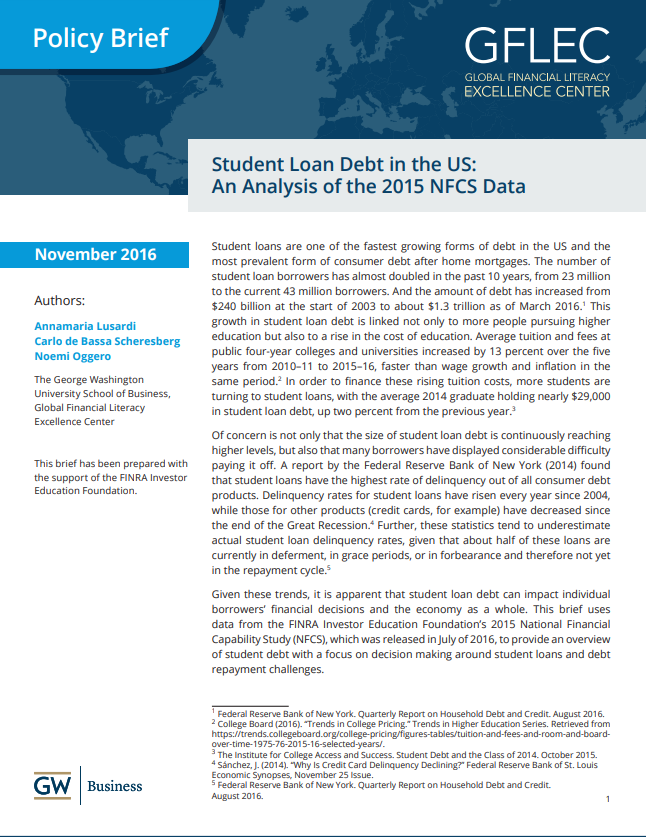What Are Federal Student Loans? Discover the Secrets to Funding Your Education
Guide or Summary:Understanding Federal Student LoansTypes of Federal Student LoansEligibility for Federal Student LoansThe Application ProcessRepayment Opti……
Guide or Summary:
- Understanding Federal Student Loans
- Types of Federal Student Loans
- Eligibility for Federal Student Loans
- The Application Process
- Repayment Options
When it comes to financing your education, understanding the options available to you is crucial. One of the most significant resources for students in the United States is federal student loans. But what are federal student loans, and how can they benefit you? In this comprehensive guide, we'll explore everything you need to know about federal student loans, including their types, eligibility criteria, application process, and repayment options.
Understanding Federal Student Loans
Federal student loans are loans provided by the government to help students pay for their education. Unlike private loans, which are offered by banks or financial institutions, federal loans come with specific benefits and protections designed to make repayment more manageable. These loans typically have lower interest rates and more flexible repayment options compared to private loans.
Types of Federal Student Loans
There are several types of federal student loans available to students:
1. **Direct Subsidized Loans**: These loans are available to undergraduate students who demonstrate financial need. The government pays the interest on these loans while you are in school at least half-time, during the grace period, and during deferment periods.
2. **Direct Unsubsidized Loans**: Available to both undergraduate and graduate students, these loans do not require a demonstration of financial need. Interest accrues while you are in school, but you are not required to make payments until after graduation.
3. **Direct PLUS Loans**: These loans are designed for graduate students and parents of dependent undergraduate students. Unlike subsidized and unsubsidized loans, PLUS loans require a credit check, and the borrower must not have an adverse credit history.

4. **Direct Consolidation Loans**: If you have multiple federal student loans, you can consolidate them into a single loan with a fixed interest rate. This can simplify your payments and may lower your monthly payment amount.
Eligibility for Federal Student Loans
To qualify for federal student loans, you must meet certain eligibility criteria:
- You must be a U.S. citizen or an eligible non-citizen.
- You must have a valid Social Security number.
- You must be enrolled or accepted for enrollment in an eligible degree or certificate program.
- You must maintain satisfactory academic progress in your program.

- You must complete the Free Application for Federal Student Aid (FAFSA).
The Application Process
Applying for federal student loans begins with completing the FAFSA. This application collects financial information that will determine your eligibility for federal student aid, including loans, grants, and work-study programs. It’s essential to complete the FAFSA as early as possible to maximize your financial aid opportunities.
Once your FAFSA is processed, you will receive a Student Aid Report (SAR), which summarizes your financial information and indicates your eligibility for federal student loans. Based on your financial need and the cost of attendance at your chosen institution, your school will determine the amount of federal student loans you can borrow.
Repayment Options
Repaying federal student loans is designed to be flexible and manageable. Here are some key repayment options:
- **Standard Repayment Plan**: Fixed monthly payments over ten years.
- **Graduated Repayment Plan**: Payments start low and increase every two years, also over ten years.

- **Income-Driven Repayment Plans**: Payments are based on your income and family size, making them more affordable.
In addition to these options, federal loans offer deferment and forbearance, allowing you to temporarily postpone payments under certain circumstances.
Understanding what federal student loans are and how they work is essential for any student looking to finance their education. With various types of loans, flexible repayment options, and protections in place, federal student loans can be a valuable tool in achieving your academic goals. By taking the time to learn about these loans and the application process, you can make informed decisions that will help you succeed in your educational journey. Don’t let the cost of college deter you—explore your options with federal student loans today!